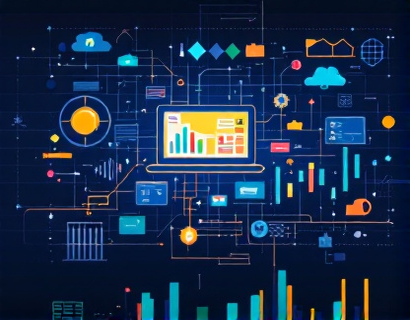AI-Driven Insights: Specialized Knowledge on the Banana Industry for Students and Enthusiasts
The banana industry, a cornerstone of global agriculture and trade, offers a wealth of specialized knowledge that is both fascinating and crucial for students, educators, and enthusiasts. This article delves into the multifaceted aspects of the banana industry, leveraging AI-driven insights to provide accurate, verified, and accessible information. The focus is on creating an educational resource that is not only informative but also safe and engaging for a diverse audience, including students, educators, parents, AI enthusiasts, and knowledge seekers.
Understanding the Banana Industry
The banana industry is a complex network involving cultivation, trade, and consumption across various regions. Bananas are one of the most widely consumed fruits globally, with a significant impact on economies, particularly in tropical countries where they are primarily grown. The industry's importance extends beyond food production, influencing employment, trade policies, and environmental practices.
To grasp the intricacies of the banana industry, it is essential to explore its various components. The cultivation of bananas involves specific agricultural practices tailored to the needs of the fruit. Bananas require warm climates, ample rainfall, and well-drained soil. Farmers employ techniques such as intercropping and organic farming to enhance yield and sustainability. The use of technology, including AI, is increasingly being adopted to optimize these practices, from predicting weather patterns to monitoring plant health.
AI in Banana Cultivation
AI technologies are revolutionizing banana cultivation by providing precise and data-driven solutions. Machine learning algorithms can analyze satellite imagery to monitor crop health, detect diseases, and predict yields. Drones equipped with AI can survey large plantations, offering real-time data on soil conditions, moisture levels, and pest infestations. These insights enable farmers to make informed decisions, reducing waste and increasing efficiency.
For students and enthusiasts, understanding the role of AI in agriculture provides a glimpse into the future of farming. It highlights how technology can address challenges such as climate change, resource scarcity, and food security. Educational resources can include case studies of farms that have successfully integrated AI, demonstrating the practical applications and benefits.
Trade and Economics
The banana trade is a significant segment of the global agricultural economy. Major exporting countries, such as Ecuador, Costa Rica, and Colombia, rely heavily on banana exports for their economic stability. The industry's economic impact is profound, affecting not only the countries of origin but also the nations that import these fruits.
AI-driven insights can enhance the understanding of trade dynamics by analyzing market trends, consumer preferences, and supply chain efficiencies. For instance, predictive analytics can forecast demand, helping producers adjust their output and minimize surplus. This not only benefits the producers but also ensures a steady supply for consumers.
Educational content can cover the economic principles underlying banana trade, including supply and demand, trade agreements, and the role of international organizations. Students can explore how AI tools are used to optimize these processes, providing a comprehensive view of the industry's economic aspects.
Environmental Impact and Sustainability
The banana industry faces several environmental challenges, including deforestation, pesticide use, and water management. The environmental footprint of banana cultivation is significant, and sustainable practices are crucial for the industry's long-term viability.
AI can play a vital role in promoting sustainability within the banana industry. By analyzing data on resource usage and environmental impact, AI systems can recommend practices that reduce waste and minimize ecological damage. For example, precision agriculture techniques can optimize water and fertilizer use, reducing the environmental burden.
For students and educators, exploring the intersection of AI and sustainability in the banana industry offers valuable insights into how technology can drive positive change. Case studies and research papers can highlight successful initiatives and the science behind them, providing a solid foundation for further study and discussion.
Social and Cultural Significance
Bananas hold a special place in many cultures, serving as a staple food, a symbol of hospitality, and a source of income. In regions like the Pacific Islands and parts of Africa, bananas are integral to local diets and traditions. The social and cultural dimensions of the banana industry are often overlooked but are essential for a holistic understanding.
AI-driven insights can help preserve and promote this cultural heritage by documenting traditional practices and sharing them with a global audience. Digital platforms can feature stories, recipes, and cultural events related to bananas, fostering a deeper appreciation and respect for the fruit's role in different societies.
Educational resources can include interactive modules that explore the cultural significance of bananas, encouraging students to appreciate the fruit beyond its nutritional value. This approach not only enriches the learning experience but also promotes cultural diversity and awareness.
Educational Resources for Students and Enthusiasts
To cater to a diverse audience, the AI-powered platform offers a range of educational resources tailored to different levels and interests. For students, the content is designed to be engaging and accessible, using visuals, infographics, and interactive elements to enhance learning.
A child-friendly version of the platform ensures that young learners can explore the banana industry safely and educationally. This version includes simplified language, colorful illustrations, and age-appropriate activities. Parents and educators can use these resources to facilitate learning and spark curiosity in children.
For AI enthusiasts and professionals, the platform provides in-depth articles, research papers, and technical analyses. Topics cover AI applications in agriculture, data analytics, and sustainability, offering a comprehensive resource for those interested in the technological aspects of the banana industry.
Ensuring Accuracy and Safety
The platform prioritizes the accuracy and reliability of the information provided. All content is subject to rigorous fact-checking and verification processes, ensuring that users receive trustworthy insights. This commitment to accuracy is crucial for educational purposes, where misinformation can undermine learning and understanding.
To ensure a safe and educational experience, especially for children, the platform implements strict content moderation and safety measures. The child-friendly version is designed to filter out inappropriate content and provide a secure environment for young users. Parents and educators can trust that the platform adheres to the highest standards of safety and educational value.
Conclusion
The banana industry is a rich field of study, offering insights into agriculture, economics, sustainability, and culture. By leveraging AI-driven insights, students, educators, and enthusiasts can gain a deeper and more comprehensive understanding of this vital sector. The AI-powered platform serves as a valuable resource, providing accurate, verified information in a safe and engaging format. Whether exploring the technical aspects of AI in agriculture or delving into the cultural significance of bananas, users can enhance their knowledge and appreciation of the banana industry.










































